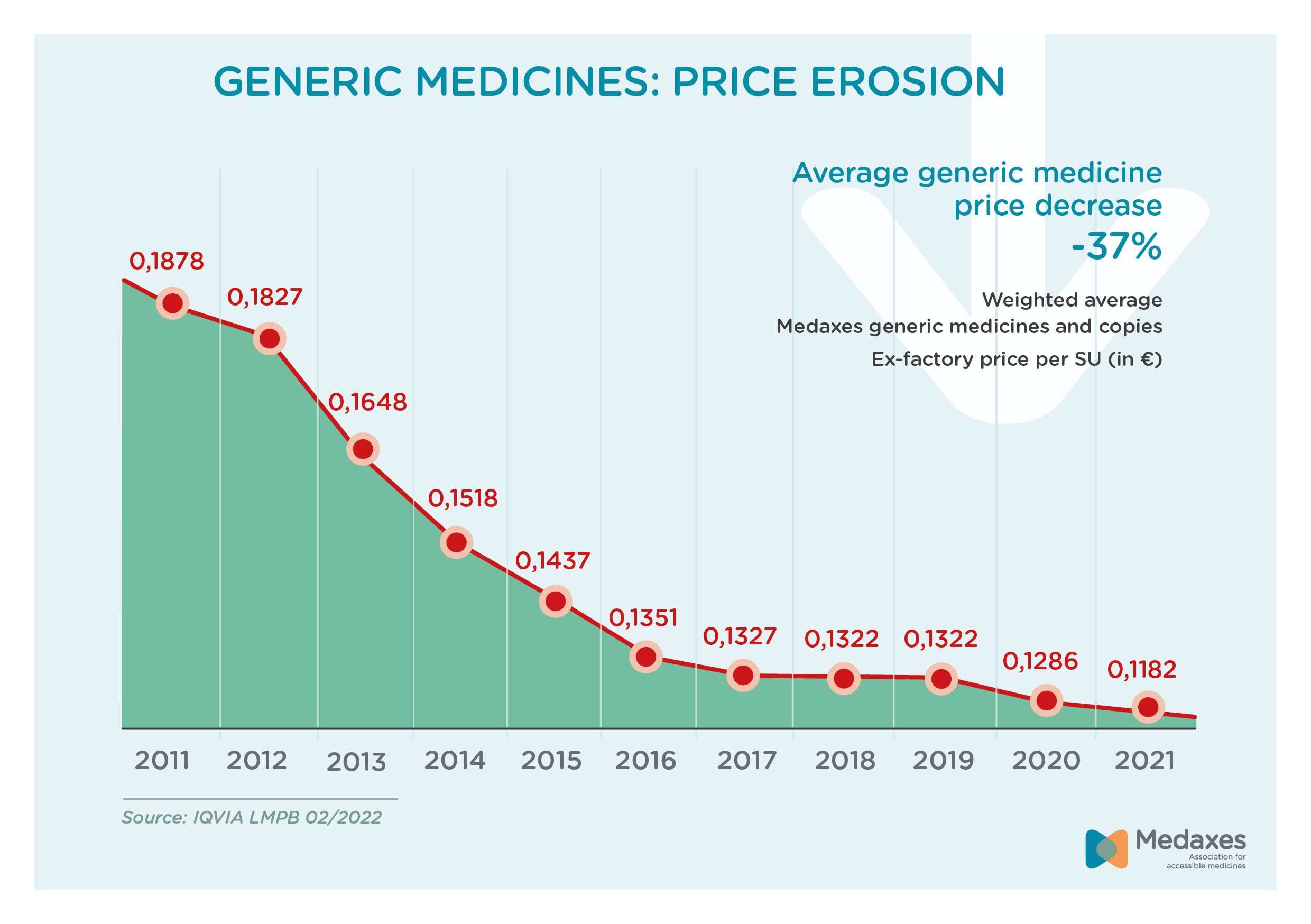Generic medicines
Generic medicines contain the same active substance and have the same therapeutic effect as branded medicines. Their price is up to nearly 68% lower than the original price of the corresponding branded medicine. Hence, generic medicines contribute to a better access to care.
Optimal access to healthcare
All over the world, generic medicines are the perfect medium to make medicines widely available to patients. They break through the patent on the branded medicine and create competition on the pharmaceutical market, causing prices to drop. Because of this, generic medicines marketed in Belgium are up to nearly 68% cheaper than the initial price of the corresponding branded medicines. In practice, this price difference can sometimes be as much as 80% or more. On top of that, the average price of generic medicines falls each year. From 2010 to 2021, this price decrease has amounted to 37% in total. In this way, both the patient and the healthcare insurance can make significant savings on their medicine expenditure. For NIHDI (INAMI/RIZIV) the savings amounted to nearly EUR 1.950 billion in 2021. These resources can a.o. be used to make more new and often very expensive therapies accessible to patients and/or to treat patients who, before the entry of the generic version, did not receive access to existing medicines.

Stimulate innovation
But there is more. Due to the competition of generic medicines, manufacturers of branded medicines are constantly encouraged to improve existing products or introduce new molecules to the market. If this incentive was lacking, the reward for innovation would be much weaker.
There are also more and more pharmaceutical companies who, in one way or another, are present in both the innovative and generic segment. In this context, we often talk about hybrid companies.
Cost-effective treatment for more than 8 out of 10 illnesses
In Belgium, there are currently approximately 300 molecules for which there is a generic version available on the market. Generic medicines can be used for more than 80% of treatments.
* * *
Looking for more information about the use of generic medicines in Belgium?
Video: Missed out on the Generic medicines day webinar of 28 October 2021?


